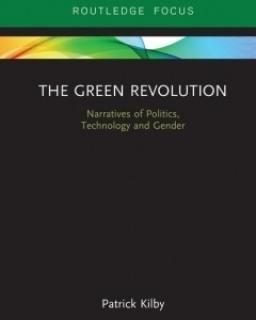
Abstract
This book reviews the Green Revolution, starting with its inception and development from the 1940s to the 1970s, and leading to what is commonly referred to as a second Green Revolution in the 2000s. Building on the historical assessment, it draws insights for contemporary policy debates and demonstrates important lessons for the here and now.
‘Green Revolution’ refers to the technical measures employed to increase food (particularly grain) production, based mainly on improved seed varieties for higher yields and pest resistance. For it to be successful the Green Revolution often required land reform, investments in irrigation and fertilizer supply that were not available to women and marginal farmers.
This book analyses three underlying principles that have guided green revolutions: the political environment in which they were set; how they contributed to both the successes and challenges the Green Revolution continues to face; and the systemic institutional barriers for access to these agricultural production advances, with a focus on how gender relations limit the inclusion of women even when they are the principle cultivators and farm managers. The book draws on experiences in Mexico, India and China, examining government policy, the role of the family farm, and key issues around the inclusion of women. In doing so, this book connects the history of the Green Revolution with contemporary policy debates on the developing world, particularly in relation to Africa and Asia, around foreign aid and agricultural research. It also specifically establishes that greater inclusivity for women and other marginalised farming communities will significantly enhance the effectiveness of these programs.
Interlinking themes of development policy, gender, and agricultural research, this book will be of great interest to students and scholars of agricultural development, food security, and sustainable development, as well as policymakers and practitioners working in international aid and agri-food policies.